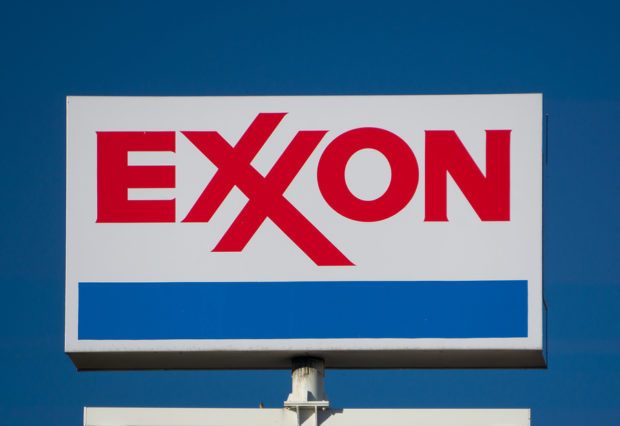Lawyers for Exxon Mobil Corp. stood before a New York judge in August and told the state’s attorney general to “put up or shut up” after spending three years investigating the company’s public disclosures about climate change, saying authorities should sue the energy giant or move on.
On Wednesday, New York chose to strike.
Attorney General Barbara Underwood filed a fraud lawsuit against Exxon in state court in Manhattan, accusing the company of misleading investors about how future regulations could impact its business. The complaint capped a tumultuous investigation that reached the highest levels of Exxon’s leadership, including former Chief Executive Officer Rex Tillerson.
Central to the probe and the lawsuit are Exxon’s use of so-called proxy costs for carbon to calculate the financial impact of future regulations on the business. The costs are supposed to assure long-term investors including institutional shareholders and pension funds that they wouldn’t be taken by surprise. New York says it was a ruse.
“Exxon built a facade to deceive investors into believing that the company was managing the risks of climate-change regulation to its business when, in fact, it was intentionally and systematically underestimating or ignoring them, contrary to its public representations,” Underwood said in a statement.
The suit was brought under several anti-fraud statutes, including New York’s Martin Act, one of the toughest such laws in the country. New York seeks an order prohibiting Exxon from continuing to make misrepresentations and forcing the company to correct its past claims. The state also seeks unspecified money damages and a disgorgement of all profit derived from the alleged fraud.
Exxon spokesman Scott Silvestri called the lawsuit “tainted” and meritless.
“These baseless allegations are a product of closed-door lobbying by special interests, political opportunism and the attorney general’s inability to admit that a three-year investigation has uncovered no wrongdoing,” Silvestri said in an email.
Behind The Scenes
The Irving, Texas-based company in March lost a lawsuit in which it sought to have the investigation halted because the case was politically motivated. Exxon claimed the probe had been corruptly coordinated behind the scenes with other Democratic-led states and hostile environmental groups.
And in April, Massachusetts’ top court affirmed a judge’s decision that Exxon must hand over documents dating back to 1976 to Attorney General Maura Healey, who is investigating alongside New York. At the time, Healey said the ruling should put an end to Exxon’s “scorched-earth campaign” to block investigations.
Exxon had sued Healey and former New York Attorney General Eric Schneiderman in federal court in Texas to try to derail the investigations, but a judge there transferred the case to New York, depriving Exxon of a hometown advantage.
Underwood said Exxon’s fraud had a direct impact on New York investors. The state’s common retirement fund, with more than 1 million employees and retirees, and the New York State Teachers Retirement System, with nearly half a million members, hold Exxon shares valued at about $1.5 billion, Underwood said.
In Wednesday’s lawsuit, New York said Exxon’s management, including Tillerson, knew for years that the company was deviating from its public claims by using a second set of proxy costs that were lower than the publicly disclosed figures.
“Exxon’s management also knew that using these lower figures made Exxon more susceptible to climate-change regulatory risk, but did not align these two sets of proxy costs for years,” Underwood said in the statement.
The suit claims Exxon discovered that if it actually applied the publicly represented proxy costs internally, it would result in “massive” costs, “large write-downs” and shorter asset lives, the state says.
For example, the state alleges, Exxon’s failure to apply its publicly represented proxy costs to 14 of its oil-sands projects in Alberta, Canada, resulted in undercounting of anticipated greenhouse-gas related expenses by more than $25 billion over the lifetime of the projects, according to the statement.
New York in June accused Exxon of failing to comply with subpoenas for cash-flow projections reflecting how it used proxy costs. The state has said it wants to know exactly how the cost for greenhouse-gas emissions was used in making investment decisions.
In August, at the hearing where Exxon lawyer Theodore Wells made the “put up or shut up” demand, a lawyer in Underwood’s office, Manisha Sheth, said New York had “smoking gun” evidence.
The case is People of the State of New York v. Exxon Mobil, New York State Supreme Court (Manhattan).
Updates with Exxon comment in eighth paragraph, proxy costs starting in 14th paragraph.
To contact the reporter on this story: Erik Larson in New York at elarson4@bloomberg.net To contact the editors responsible for this story: David Glovin at dglovin@bloomberg.net Steve Stroth





















 New Texas Law Requires Insurers Provide Reason for Declining or Canceling Policies
New Texas Law Requires Insurers Provide Reason for Declining or Canceling Policies  Is Risk the Main Ingredient in Ultra-Processed Food?
Is Risk the Main Ingredient in Ultra-Processed Food?  State Farm Inked $1.5B Underwriting Profit for 2025; HO Loss Persists
State Farm Inked $1.5B Underwriting Profit for 2025; HO Loss Persists  Reinsurance Program Could Wipe Out Need for Calif. FAIR Plan: Legal Exec
Reinsurance Program Could Wipe Out Need for Calif. FAIR Plan: Legal Exec 









